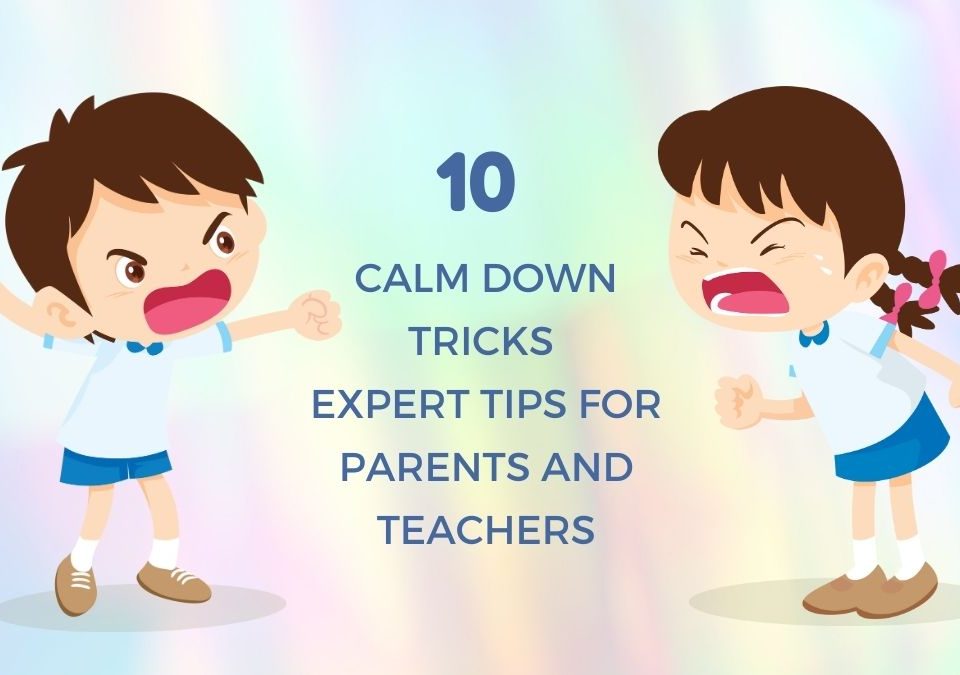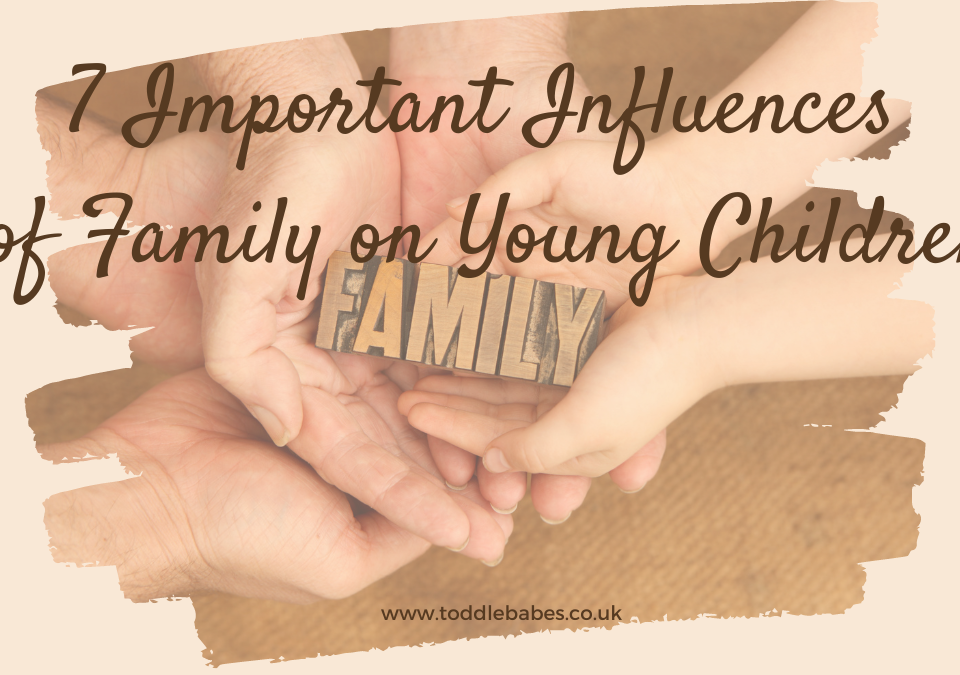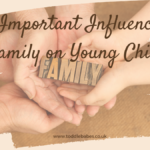
7 Important Influences of Family on Young Children
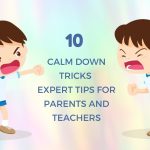
10 Calm Down Preschoolers: Expert Tips for Parents and Teachers
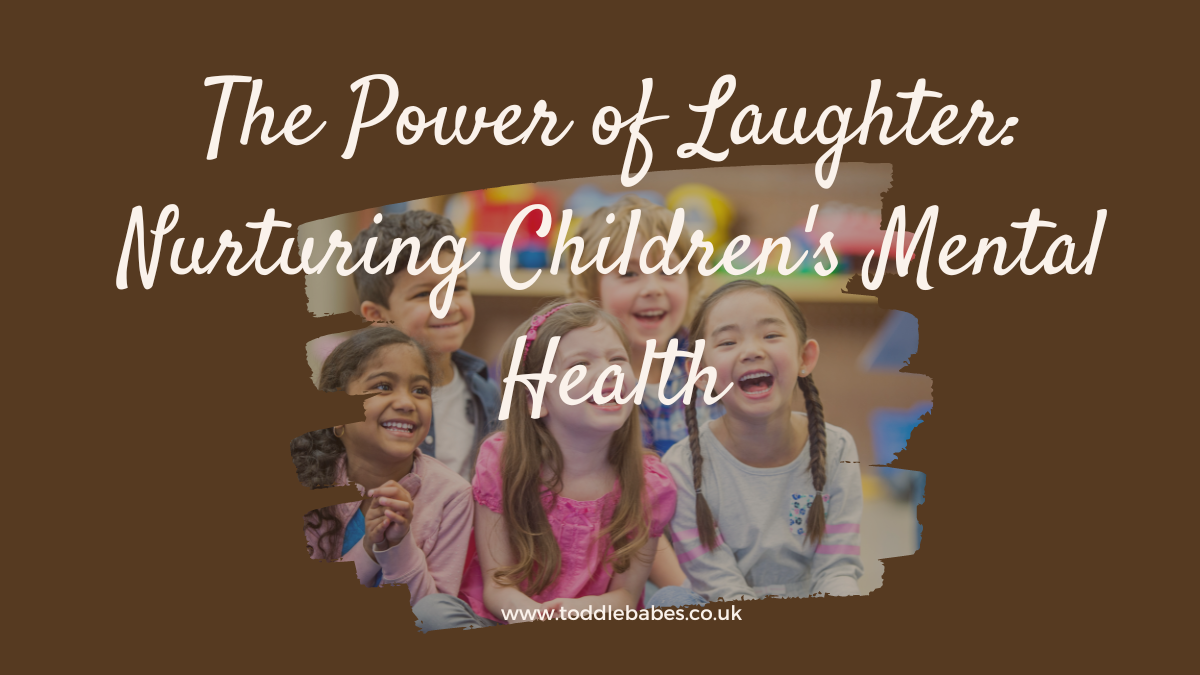
In today’s hustle, the sound of children laughing can easily get drowned out. But laughter isn’t just fun—it helps children build resilience, reduce stress, and connect more deeply with the people around them.
Table of Contents
Why Laughter Matters:
-
Releases feel-good hormones: Laughter triggers endorphins that ease stress, lift mood, and promote wellbeing
-
Deepens parent-child bonds: Sharing a giggle boosts connection and reduces emotional tension in tricky moments
-
Builds life skills: Laughter fosters resilience, problem-solving, creativity and even empathy .
What Is “Giggle Parenting”?
Rather than insisting or admonishing, giggle parenting skips the power struggle—and leans into silliness. When you dance awkwardly or pretend the toothbrush belongs on your nose, those unexpected funny moments help your child feel in control and laughter replaces tension.
Examples:
-
Dabbing toothbrushes on socks, ears, or elbows to spark a giggle.
-
Dressing a teddy before your child and pretending you got it all wrong.
-
Letting your child lead a pretend bathtime for you—complete with singing and bubbles.
Those few minutes of laughter can soften even the toughest objections: suddenly, brushing teeth or getting dressed becomes much more cooperative.
Laughter With Older Children
Kids grow—but laughter stays golden. With school-age children:
-
Try role reversal: play a video game together and laugh when you’re not as good.
-
Keep going with goofy challenges (“My stomach tickles when I say banana!”).
-
Share embarrassing stories from your past and let them chuckle with you.
Shared silliness creates emotional memory and strengthens your bond.
Science-Backed Benefits of Laughter
Recent research confirms what parents know in their hearts:
-
Laughter reduces cortisol (the stress hormone) and improves mood
-
It boosts emotional and social resilience—kids who laugh are more creative, adaptable, and ready to face challenges .
-
Laughing together is contagious: when parents laugh, children’s mirror neurons join in .
Everyday Laughter Practices
Here are simple, joyful habits you can weave into everyday life:
-
Start and end your day with laughter—a silly joke before bed or a morning tickle fight.
-
Play “funny role-play” at routine moments like brushing teeth or getting ready.
-
Make mistakes on purpose—put socks on ears, sing the wrong words, and laugh at yourself.
-
Share funny stories from when you were little—disastrous dance moves, silly school moments.
-
Watch funny videos together—kids’ laughter boosts yours and reinforces bonding
-
Celebrate with humour when they try something new—laughing at their own efforts helps them feel relaxed about getting better.
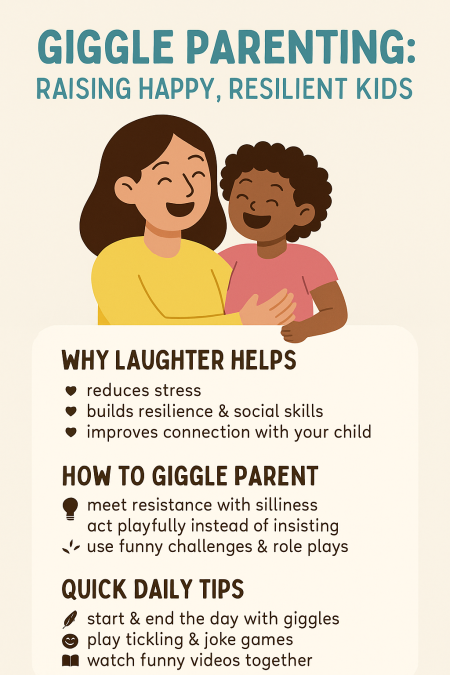
Here are a few fun and silly games that will have your child giggling while building connection, imagination, and even some sneaky skills like balance, memory, and listening:
1. Crazy Dress-Up Race
Each person has to put on a pile of wacky clothes (backwards shirt, oversized shoes, funny hat, etc.) as fast as possible. Add a twist—maybe hop like a bunny to the dress-up pile!
2. Animal Charades
Take turns acting out different animals without speaking, while everyone else guesses. Bonus points for silly sound effects or made-up creatures like a “unicorn chicken.”
3. Giggle Freeze Dance
Play music and dance as goofily as possible. When the music stops, everyone freezes—first to giggle has to do a silly challenge like “moo like a cow” or “do 5 robot jumps.”
4. Toilet Paper Mummy
Wrap each other in toilet paper to become a mummy. Great for Halloween or just random fun. Fastest wrapper wins!
5. Silly Sandwich
Pretend your child is a sandwich and pile imaginary ingredients on them—“a squishy tomato on your head, a scoop of jelly on your tummy”—then pretend to take a bite with dramatic flair.
6. Bubble Catch
Blow bubbles and challenge your child to pop them using only elbows, knees, or even their nose!
7. Wacky Obstacle Course
Set up a living room course—crawl under the table, hop around a chair, roar like a lion to pass the couch. Add ridiculous rules like “only walk sideways like a crab.”
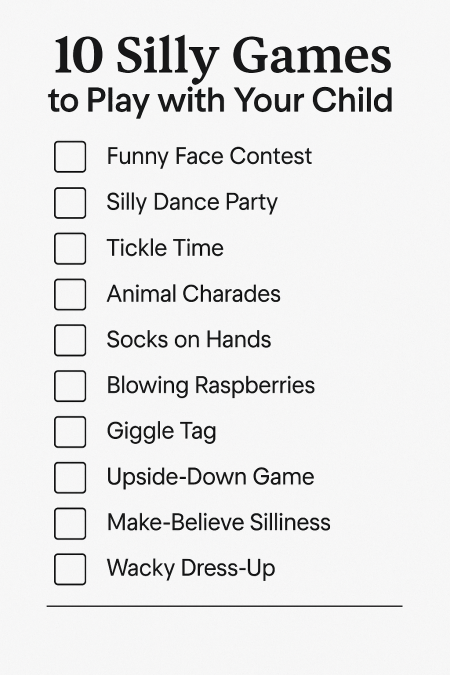
A Little Laughter for Emotional Growth
Children who laugh easily:
-
-
Are better at expressing emotions and empathy,
-
Recover faster from disappointments,
-
Handle stress with more flexibility,
-
And build stronger, happier connections—with you and their peers
-
🎁 Bonus Tip: Laughter Jar!
Start a Laughter Jar—fill a jar with funny sentences, silly drawings, or kid-jokes. When someone feels sad or bored, choose a slip and laugh together. It becomes a family ritual and mood-lifter!
Final Thoughts
Your down-to-earth wisdom + playful parenting = a nurturing space where every day is brighter. By sprinkling a little silliness into routines, you’re not just making happy memories—you’re building skills for resilience, confidence, and joy that last a lifetime.
Read this super helpful book for some top tips:
Forget advice on nappies, feeding and flu jabs: this funny, inspiring book goes to the heart of being a parent communication. Find out how to nurture your children during the precious years from birth to six, helping them become happy and confident individuals.
Clickable links to books I recommend:
While using a simple metaphor of a bucket and a dipper, author Carol McCloud illustrates that when we choose to be kind, we not only fill the buckets of those around us, but also fill our OWN bucket! Conversely, when we choose to say or do mean things, we are dipping into buckets. All day long, we are either filling up or dipping into each other’s buckets by what we say and what we do. When you’re a bucket filler, you make the world a better place to be! This 32-page picture book is perfect for children, parents, grandparents, teachers and people that want to teach empathy, nurture, kindness and create a positive environment in their home, classroom, workplace and community.
Having a pet dragon is very fun. But what do you do if he gets angry or upset? What do you do when your dragon lost his cool and wants to burn everything to the ground? Get this book and learn how to train your angry dragon! A must have book for children and parents to teach kids about emotions and anger management.

I am a preschool and primary school teacher and mum to 3 children. I have been involved in education since 1997 and have trained in a variety of educational specialist areas. It is with this expertise that I write articles to help parents and educators provide quality learning experiences for the children in their care.


